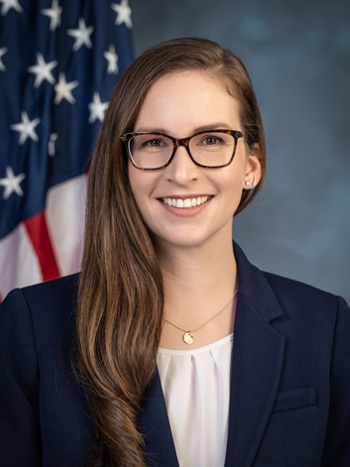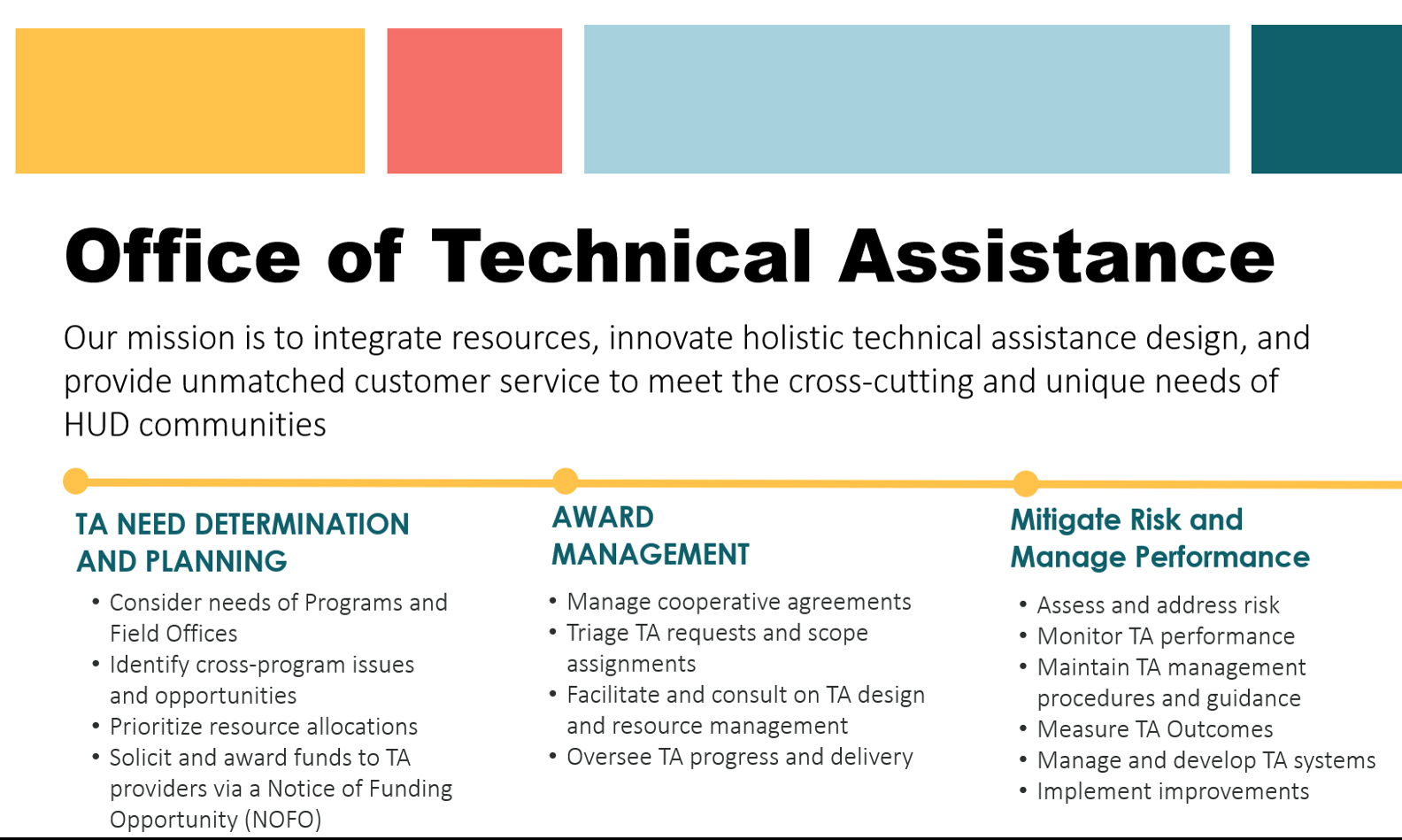Introducing Deputy Assistant Secretary for Technical Assistance Stephanie Stone
 Stephanie Stone, Deputy Assistant Secretary for Technical
Assistance.
Stephanie Stone, Deputy Assistant Secretary for Technical
Assistance.Hello! I’m Stephanie Stone, the new deputy assistant secretary for technical assistance, and I’m happy to have the opportunity to introduce myself in this edition of PD&R Edge! I joined the Office of Policy Development and Research (PD&R) at the start of fiscal year 2024 following an administrative reorganization. As part of that reorganization, the HUD Technical Assistance (TA) team moved from HUD’s Office of Community Planning and Development (CPD) to PD&R’s brand-new Office of Technical Assistance.
For the past 7 years, I have led our HUD TA team in strategic efforts to improve our administrative consistency, efficiency, and effectiveness. We adopted a new financial and reporting system, initiated a risk-based compliance program, and redesigned our Notice of Funding Opportunity to engage a record number of new small and niche firms in building the capacity and expertise of HUD’s customers.
Before joining HUD TA, I served in the Office of Field Operations in the Office of Public and Indian Housing, where, among other projects, I guided the development of training and capacity-building resources for public housing agencies. One key initiative I stewarded that you may recognize is Lead the Way.
As we build the new Office of Technical Assistance, I am grateful to complement my experience and philosophy with those of an incredible leadership team: Takiyah Worthy, director of our Award Management Division; Ken Rogers, team lead for Award Management; and Jie Dong, director of our Risk and Performance Management Division. We hope to welcome a director for our TA Planning and Coordination Division soon.
Why move TA to PD&R?
For more than a decade, the role of the HUD TA team has been evolving. We expanded from managing technical assistance for only CPD to administering technical assistance programming throughout the department, ultimately coordinating with more than 80 internal program partners. Our portfolio grew from one program to three, which together fund more than 35 technical assistance providers through 350 cooperative agreements, representing more than $500 million in on-going technical assistance investment. At that scale, HUD TA needed to reorganize by function — to seize operational efficiencies and build the specialization necessary to maintain our reputation for integrity and innovation.
From an operational perspective, the new Office of Technical Assistance provides an administrative structure that will allow HUD TA to continue to grow and evolve while reinforcing our collective principles:
- Our core purpose is to facilitate TA activities to improve HUD program delivery and impact.
- Our strategic approach is efficiency, collaboration, and an outcome focus.
- Our vision is to be an innovative industry leader and a helpful, reliable partner.
- Our philosophy is that technical assistance should be flexible, responsive, and holistic.
Beyond the obvious operational benefits of moving to PD&R, we are most excited to support the strategic benefit of the reorganization. We believe technical assistance and capacity building play important roles in creating and sustaining a viable policy development feedback loop by preparing and equipping practitioners to activate and apply policy and research findings in practice. We are eager to shape that role by identifying ways to connect PD&R’s existing research, analysis, and policy portfolio with opportunities to deliver high-impact technical assistance and capacity building.
What’s on the horizon for HUD TA?
Cultivating mechanisms to identify these connections to elevate HUD’s impact will be an immediate and sustained focus for HUD TA. In July, we will host the first convening in 5 years for all HUD technical assistance providers. The theme of the convention is Innovation: Bridging Ideas to Impact. We are excited for the opportunity to gather new perspectives, deepen connections, and ultimately improve HUD TA.
We also look forward to building our field of practice. We plan to leverage our new relationship with PD&R to reevaluate the HUD TA performance framework and improve its accuracy and utility in assessing the effectiveness of TA models. By layering sound programwide analysis with the lessons we gather from Practicum (a new department in PD&R’s Cityscape journal focused on the analysis of technical assistance and capacity building), we plan to improve the application of rigorous evidence-based decisionmaking within the organization, encourage it among our funded TA partners, and model it broadly to others in our discipline.
In addition, we will maintain our pursuit of continuous improvement for HUD TA program design and operation. Whether it’s a new award management process, a new planning tool, or a new risk indicator, each of our divisions will strive for the highest standards of integrity and impact. We are presently developing a report to Congress outlining recommendations for how HUD TA can more effectively help state and local entities access federal housing resources. We intend that report to provide direction and cadence to the next steps in HUD TA’s evolution.
The Office of Technical Assistance is deeply dedicated to HUD’s mission, and we look forward to working with our new PD&R colleagues to advance that mission at every opportunity.

